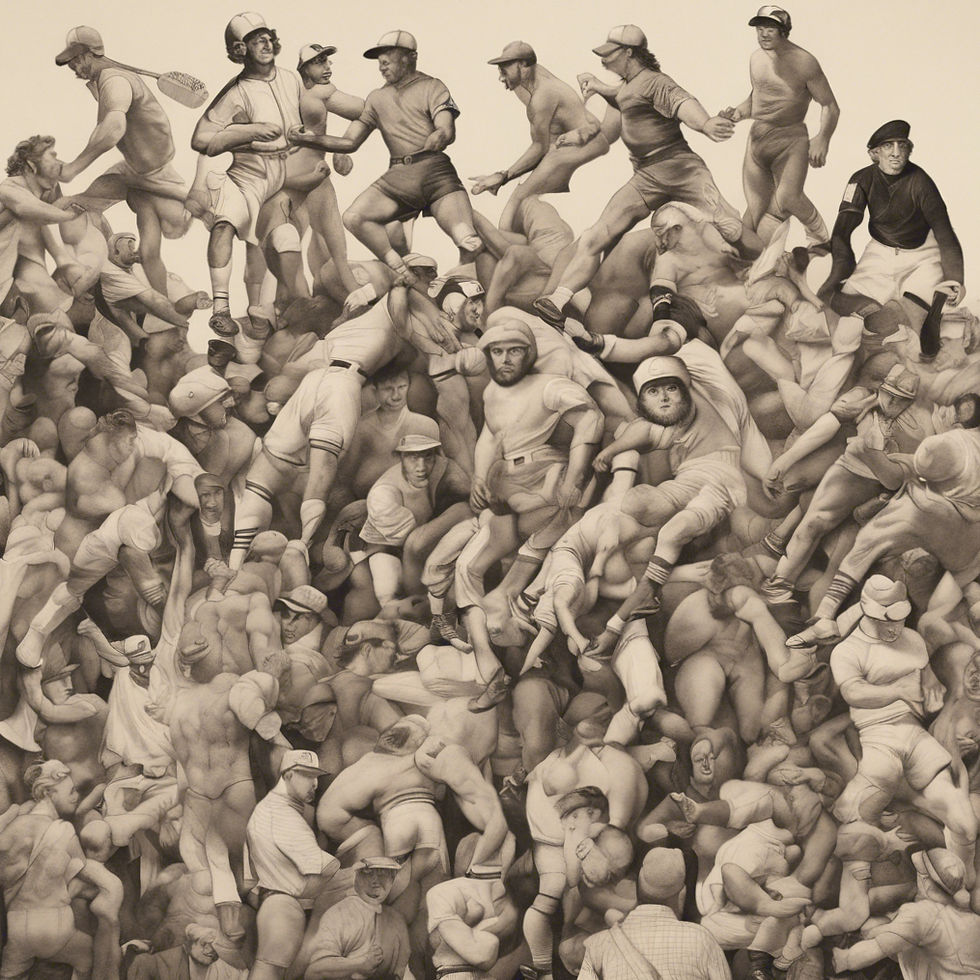Changing Pitchers, Changing Attitudes
- Charlie Teljeur

- Nov 16, 2024
- 4 min read

Somewhere between a radical and a conservative lies a purist, or at least that’s what I try to tell myself.
For some reason, when it comes to sports, I tend to like things to stay the way they are. That includes names, uniforms, numbers and even the rules. My thinking being that, whatever got us here must be working, so why change now?
That can - and has - included everything to do with things like where teams are located (for the most part I don’t like when teams relocate), what the team wears (What’s wrong with wearing the "classic" jerseys as their regular jerseys?) and the utter rebranding of everything (All buildings are named after some sort of corporate entity now).
Now, I’m not saying that my stances on these various issues were wrong, it’s just that I may have been guilty of putting up too-spirited of a fight for what was actually at stake.
I mean, is it really that important that NFL quarterbacks today are not forced to wear a number 10 and 19?
Is the trapezoid in the NHL really that bad a restriction on goalies?
In both cases I still feel the same justified reasoning I once did but, in the end, what’s the big deal? Moreso, is it really something that will fundamentally spoil my love for the sport?
This is the question I’m currently wrestling with after learning that Major League Baseball is (now) toying with the idea of mandating that starting pitchers cannot be pulled from a game unless they’ve pitched a full six innings.
This is still in the hypothetical stage mind you but, among its many complaints, evidently league management isn't happy with the way pitching staffs are handled today because they don't fixate on the importance of starting pitchers.
MLB doesn’t like this new trend for a number of reasons.
One, being the marketability of a great starting pitcher and two, the increasing frequency of short relievers blowing out their arms due to “overpitching” otherwise known as too much reliance on pitching velocity (fastballs).
If pitchers were forced to go a full six innings the thinking goes then they’ll need to rely more on strategy and pitch variation rather than just a dependence on speed.
These proposed rule changes are meant, as always, to "improve" the game in multiple ways, and, while I'll admit that my first reaction is one of disgust and disdain (quite commonplace for me, I'm now realizing) but after some clarification and some consideration, these ideas don’t seem so asinine after all.
Learning the minute details certainly helped. While a stipulation for six complete innings seems really arbitrary it was also explained that a starter’s limits could also be defined as having thrown more than 100 pitches in the game, or having given up four or more earned runs, or because of an actual injury.
Upon contemplation, and after important clarification, this seemed much more reasonable. Not necessarily an idea I could wholeheartedly endorse but at least you’d be arguing a better case for people like me.
It’s precisely here where I recognized the fundamental basis of my opposition to change in sports. Here, where I came to see - and I learned to accept - that I was unabashedly a sports purist, and how that having an based on being a purist can really hamper a person's growth, and also the game.
That, I see now, is the very nature of sports. Sports have always been about change.
Someone, some time ago, came to invent the rules of a game and from that game came its original rules, which very much reflected the zeitgeist of the sport at the time. These brand new rules, made for this brand name game, are pulled from nothing more than thin air.
Someone near the start, decided to institute 'legal" boundaries to this new game. And these boundaries, these new rules, are completely arbitrary, and while arguing the arbitrary nature of these new proposed rule changes, I came to the realization that all rules changes are arbitrary. Amendments to rule established changes and having adaptations to its current standards, are as much a part of a game as the game itself.
As the game changes, the game must change.
For example, in 1974 the NFL decided to moved the goalposts from the front of the end zone to the back in an attempt to create more offensive space near the goal line. It would prevent injuries coming as a result of having a very large obstacle stuck in the middle of a playing field.
The impediment was removed and teams in the league were forced to adapt to the new reality.
That new reality has always dictated changes in the game whether it involved the players, the equipment or any other factor that could alter the nature of the game.
As players become faster and stronger, the limits of the game and the rules that govern it, require a willingness to change. That change extends to us too. Inflexibility, in the long term, is always on the losing side of history and being irrationally-attached to something, to an obsession with the status quo isn't a good enough reason to be obstinate.
This is not to say that tradition and established standards shouldn’t be revered and respected. And this doesn’t mean that every rule changes that's proposed should be instituted, but the very nature of sports, let alone life in general, requires a basic willingness to welcome change and to accept change. And in the end, what’s most important is a person’s ability to tell their sacred cows apart.


Commenti